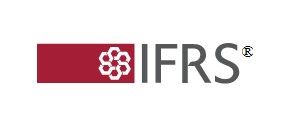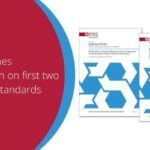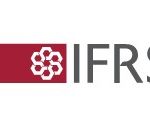
The IFRS Foundation’s International Sustainability Standards Board (ISSB) today outlined the necessary steps required to establish a comprehensive global baseline of sustainability disclosures. The ISSB’s global baseline presents a unique opportunity to reduce the existing and further fragmentation of sustainability disclosure requirements. Widespread use of the baseline will reduce the costs for data preparers and improve information usability for data users.
The ambition of the ISSB is to have completed by the end of 2022 the necessary institutional and technical standard-setting work to establish the core elements of the global baseline, subject to feedback received from its ongoing consultation.
Work to establish the global baseline has been welcomed by the G7, G20, the International Organization of Securities Commissions (IOSCO), the Financial Stability Board and by companies and investors from around the world.
Implementation of the global baseline will then require action by others, including public authorities and market participants, to contribute towards the development of the global baseline and to require or encourage its widespread use. The ISSB stands ready to engage proactively as jurisdictions and other stakeholders begin their evaluation of the ISSB’s standards—IFRS Sustainability Disclosure Standards.
Implementing the global baseline
International collaboration in the development of the global baseline is essential to create a disclosure system that can be implemented globally, resulting in a consistent approach across markets. The current consultation on the ISSB’s proposed standards provides an opportunity for jurisdictions to contribute to the development of high-quality standards for capital markets.
The ISSB is poised to work in close cooperation with jurisdictions that are consulting, or plan to consult, on their capital market requirements for sustainability disclosures via a dedicated inclusive working group. As this work develops, the ISSB will pay special attention to the needs of emerging and developing economies, as well as smaller- and medium-sized companies and others within global supply chains, recognising the additional challenges faced by such companies in applying sustainability disclosure requirements.
Consistent with requests by the G7 and the G20, the ISSB intends to intensify its engagement with jurisdictional authorities and market participants to facilitate participation in the ISSB’s standard-setting. This engagement includes working with IOSCO as it evaluates whether to endorse standards issued by the ISSB for use by its members, and with organisations responsible for considering the assurance of sustainability-related financial disclosures.
Furthermore, the ISSB is currently establishing the necessary advisory and consultative bodies that will serve as a platform for enhanced collaboration with other international organisations, jurisdictional authorities and representatives of other stakeholders. These arrangements provide an essential mechanism to enable stakeholders to help shape the requirements of the global baseline and to facilitate compatibility with broader jurisdictional requirements.
The global baseline approach will play a vital role in building the trust and transparency needed to foster economic stability and contribute to the transformation of sustainable economic, social and environmental systems and a just transition for a better future.
Demand-driven
The ISSB was established in November 2021 at the COP26 climate conference in response to strong demand from public authorities and market participants for high-quality, globally consistent sustainability disclosures that enable investors to assess sustainability-related risks and opportunities when making investment decisions and assessing enterprise value. Finance Ministers and Central Bank Governors from over 40 jurisdictions in six continents officially welcomed the announcement of the ISSB and its work programme to develop a set of internationally consistent, high-quality and reliable standards for disclosure of sustainability-related information.
The global baseline builds upon, incorporates and protects the heritage of the existing investor-focused sustainability disclosure standards, including those of the Task Force on Climate-related Financial Disclosures (TCFD), the Climate Disclosure Standards Board (CDSB), SASB Standards, Integrated Reporting and the World Economic Forum’s metrics.
Significant progress towards the global baseline
Since the COP26 announcement, considerable progress has been made in both the ISSB’s institutional arrangements and technical work.
At an institutional level, the IFRS Foundation Trustees appointed Emmanuel Faber and Sue Lloyd to serve as Chair and Vice-Chair respectively of the ISSB, with Janine Guillot serving as Special Advisor. Further appointments are underway, with the board expected to reach the required number of members to begin its work by the end of Q2 2022 with the full board expected to be in place during Q3 2022.
The IFRS Foundation has announced agreements to establish the ISSB’s primary locations in Frankfurt and Montreal, with work ongoing to establish its Asian footprint. The consolidation of the CDSB into the IFRS Foundation was completed in January 2022, whilst the consolidation of the Value Reporting Foundation (home of SASB Standards and Integrated Reporting) is expected to be completed by the end of June 2022.
Moreover, the IFRS Foundation has entered into a cooperation agreement with the Global Reporting Initiative (GRI) to reduce the reporting burden for jurisdictions and companies when combining the ISSB’s global baseline and the GRI’s multi-stakeholder sustainability reporting requirements. Cooperation of the ISSB and the other initiatives such as the Taskforce on Nature-related Financial Disclosures (TNFD) is also important.
At a technical level, in March 2022 the ISSB published for public comment its first two proposed standards – a draft climate standard and a general requirements standard, complete with industry-based requirements. Both proposed standards build upon prototypes published at COP26, incorporating TCFD recommendations and are open for public comment until 29 July 2022. The ISSB is currently undertaking a comprehensive outreach programme to encourage broad participation in the consultation.
The ambition of the ISSB is to issue final requirements by the end of 2022, depending on feedback received. The ISSB’s future agenda and priorities will be determined based on further public consultation.
Together, these developments ensure the necessary institutional and technical underpinnings for the global baseline to be in place by the end of 2022.
Summary
In the six months since the announcement about the creation of the ISSB at COP26, significant progress has been made in the institutional and technical work of the new board. Depending on feedback received from its consultations, the ISSB remains on track to deliver by year-end the first stage of a global baseline of sustainability disclosures for the capital markets, as welcomed by the G20 and the G7.
The global baseline builds upon, incorporates and protects the heritage of the existing investor-focused sustainability disclosure standards, including TCFD, CDSB, SASB Standards, Integrated Reporting and the World Economic Forum’s metrics.
Once in place, the future success of the global baseline will depend on combined action by public authorities to incorporate it into their jurisdictional reporting requirements, and market demand through investors and others encouraging use of the ISSB’s IFRS Sustainability Disclosure Standards. The ISSB reaffirmed its commitment to work collaboratively with jurisdictions and stakeholders in pursuit of this public interest objective and is poised to engage proactively as jurisdictions and other stakeholders begin their evaluation of the ISSB’s standards.



